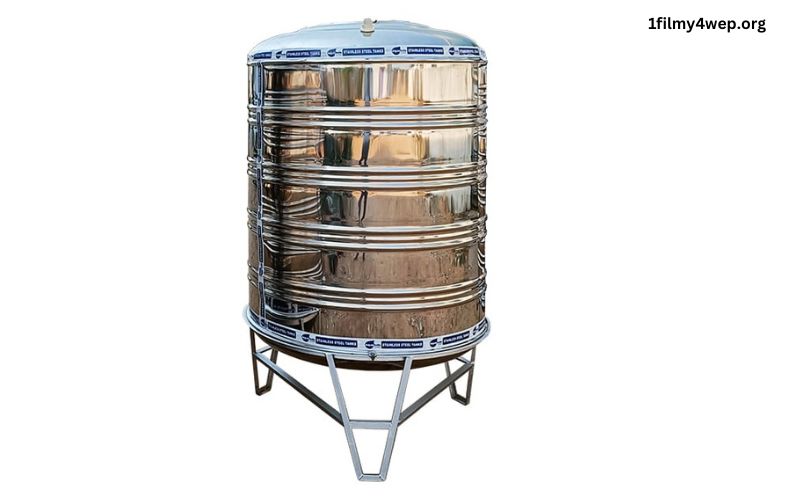Water storage is a crucial element for both residential and commercial applications, ensuring a reliable supply during shortages or emergencies. Among the various materials used for water storage tanks, steel stands out due to its durability, strength, and longevity. In this article, we will delve into the specifics of 1000-liter steel water tanks, exploring their benefits, factors affecting their pricing, and a comparison with other types of tanks.
The Importance of Steel Water Tanks
Steel water tanks are favored for several reasons:
- Durability and Strength: Steel is known for its robust nature, making these tanks resistant to various physical damages.
- Longevity: With proper maintenance, steel tanks can last for decades without significant degradation.
- Hygiene: Steel tanks are less susceptible to algae growth and are easier to clean, ensuring cleaner water storage.
- Recyclability: Steel is fully recyclable, making these tanks an environmentally friendly option.
Types of Steel Used in Water Tanks
When it comes to steel water tanks, the type of steel used can impact both the performance and the price. The most common types are:
- Galvanized Steel: This type of steel is coated with a layer of zinc to prevent rusting, making it a cost-effective option for water tanks.
- Stainless Steel: Known for its high resistance to rust and corrosion, stainless steel tanks are ideal for long-term water storage but come at a higher price point.
Factors Influencing the Price of 1000-Liter Steel Water Tanks
The price of a 1000-liter steel water tank can vary significantly based on several factors:
- Material Quality: As mentioned, galvanized steel tanks are generally cheaper than stainless steel tanks due to the cost of materials and manufacturing processes involved.
- Brand and Manufacturer: Well-known brands might charge a premium for their tanks due to their reputation for quality and reliability.
- Design and Features: Tanks with additional features such as UV protection, insulation, or specialized coatings can cost more.
- Manufacturing Process: Tanks that are fabricated with advanced techniques for better durability or custom designs will be more expensive.
- Geographical Location: Prices can vary based on the region due to differences in material costs, labor, and transportation.
Price Range of 1000-Liter Steel Water Tanks
On average, the price of a 1000-liter steel water tank can range from $300 to $1,200. This wide range is influenced by the factors mentioned above. Here is a more detailed breakdown:
- Basic Galvanized Steel Tanks: Typically priced between $300 and $500. These tanks are functional but might lack some of the advanced features of higher-end models.
- Standard Stainless Steel Tanks: These are usually in the $600 to $900 range. They offer better durability and resistance to corrosion, making them a popular choice for many.
- Premium Stainless Steel Tanks: For tanks with additional features or higher quality construction, prices can go up to $1,200 or more.
Benefits of Investing in a 1000-Liter Steel Water Tank
- Cost Efficiency Over Time: While the initial investment may be higher compared to plastic or fiberglass tanks, the long-term durability and lower maintenance costs of steel tanks can result in overall cost savings.
- Health and Safety: Steel tanks do not leach harmful chemicals into the water, ensuring safer drinking water storage.
- Temperature Regulation: Steel tanks can better withstand temperature variations, reducing the risk of water contamination due to heat.
Comparing Steel Tanks with Other Types of Water Tanks
When choosing a water tank, it’s important to consider how steel tanks compare with other materials such as plastic, fiberglass, and concrete.
- Plastic Tanks: These are usually cheaper and lighter than steel tanks, making them easier to install. However, they are more prone to damage from UV exposure and can degrade over time.
- Fiberglass Tanks: These tanks offer good resistance to corrosion and are lightweight. However, they can be more expensive than plastic tanks and may not match the durability of steel.
- Concrete Tanks: Extremely durable and suitable for large-scale storage, concrete tanks are often more expensive and require a more complex installation process compared to steel tanks.
Installation and Maintenance Considerations
Proper installation and maintenance are crucial for maximizing the lifespan and efficiency of a steel water tank.
- Installation: It is recommended to have professional installation to ensure that the tank is properly placed and secured. Factors such as foundation stability and accessibility should be considered.
- Maintenance: Regular inspections for signs of rust, leaks, or damage are essential. Galvanized tanks might require occasional re-coating, while stainless steel tanks should be cleaned periodically to prevent mineral buildup.
Popular Brands and Manufacturers
Several brands are known for producing high-quality steel water tanks. Some of the leading manufacturers include:
- Aquamate: Known for their robust designs and high-quality materials.
- Heritage Water Tanks: Offers a range of customizable options and a reputation for durability.
- Kingspan: Provides a variety of tank sizes and types, including options with advanced features.
- Bushmans: Offers both galvanized and stainless steel tanks, catering to various budget ranges.
Conclusion
Investing in a 1000-liter steel water tank is a decision that balances initial cost with long-term benefits. The durability, safety, and efficiency of steel tanks make them a preferred choice for many homeowners and businesses. While the price can vary based on material, brand, and additional features, the overall advantages often justify the investment.
When selecting a tank, it is essential to consider your specific needs, budget, and the long-term maintenance requirements. By doing so, you can ensure a reliable water storage solution that will serve you well for years to come. Whether opting for a basic galvanized model or a high-end stainless steel tank, the right choice will provide peace of mind and secure water storage.

